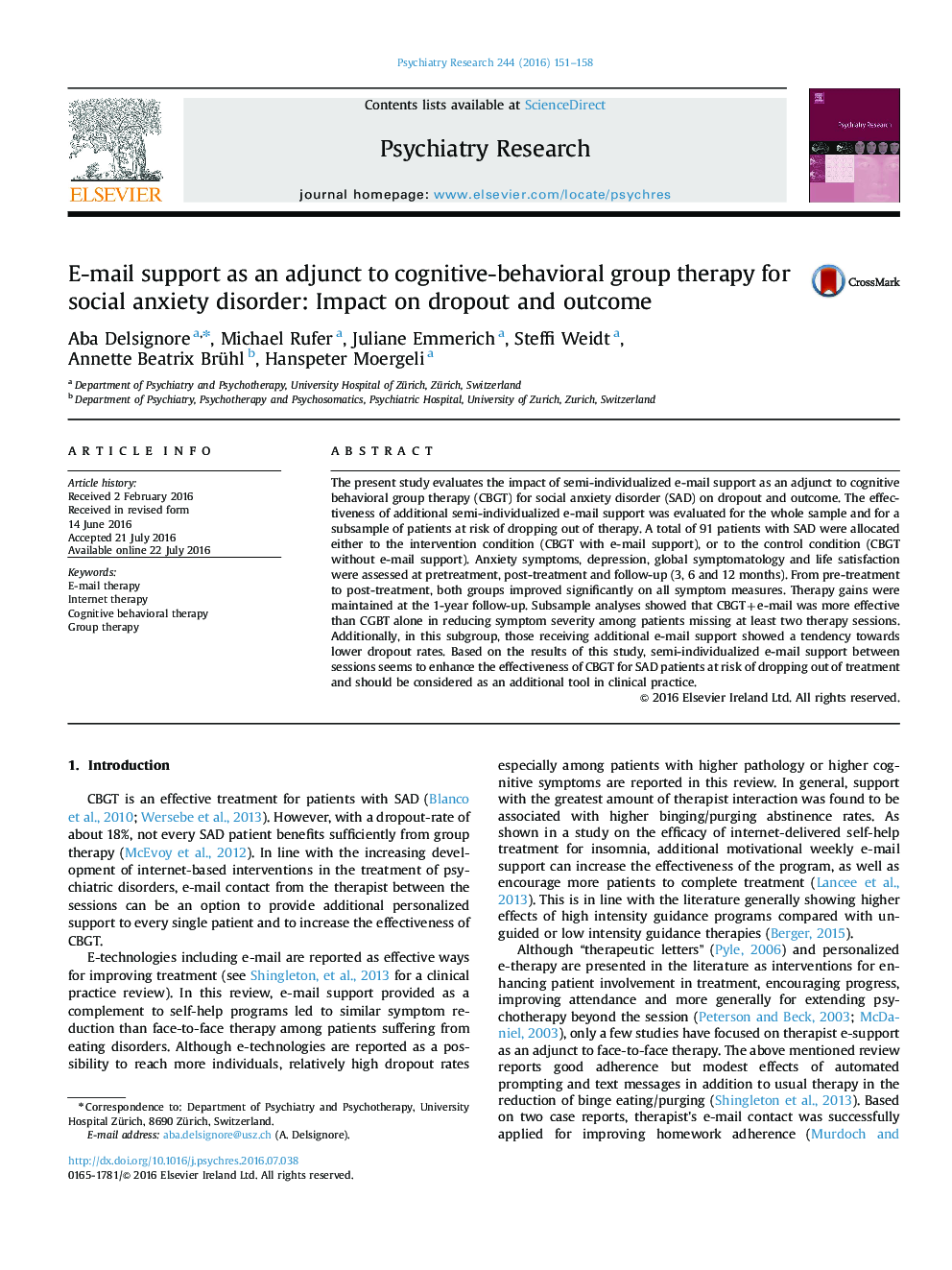| Article ID | Journal | Published Year | Pages | File Type |
|---|---|---|---|---|
| 333007 | Psychiatry Research | 2016 | 8 Pages |
•E-mail support can be applied as a complement to face-to-face group therapy.•Patients at risk of dropping out benefit particularly from email-support.•This intervention should particularly target patients at risk of dropping out.•Findings need to be replicated with different samples than SAD patients.•Future research should focus on mechanisms through which e-mail support works.
The present study evaluates the impact of semi-individualized e-mail support as an adjunct to cognitive behavioral group therapy (CBGT) for social anxiety disorder (SAD) on dropout and outcome. The effectiveness of additional semi-individualized e-mail support was evaluated for the whole sample and for a subsample of patients at risk of dropping out of therapy. A total of 91 patients with SAD were allocated either to the intervention condition (CBGT with e-mail support), or to the control condition (CBGT without e-mail support). Anxiety symptoms, depression, global symptomatology and life satisfaction were assessed at pretreatment, post-treatment and follow-up (3, 6 and 12 months). From pre-treatment to post-treatment, both groups improved significantly on all symptom measures. Therapy gains were maintained at the 1-year follow-up. Subsample analyses showed that CBGT+e-mail was more effective than CGBT alone in reducing symptom severity among patients missing at least two therapy sessions. Additionally, in this subgroup, those receiving additional e-mail support showed a tendency towards lower dropout rates. Based on the results of this study, semi-individualized e-mail support between sessions seems to enhance the effectiveness of CBGT for SAD patients at risk of dropping out of treatment and should be considered as an additional tool in clinical practice.
